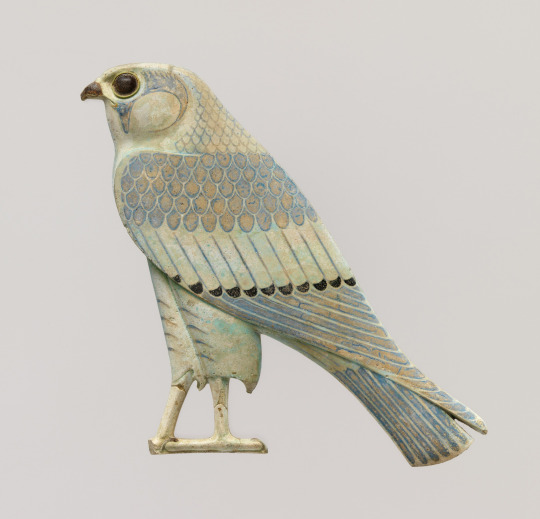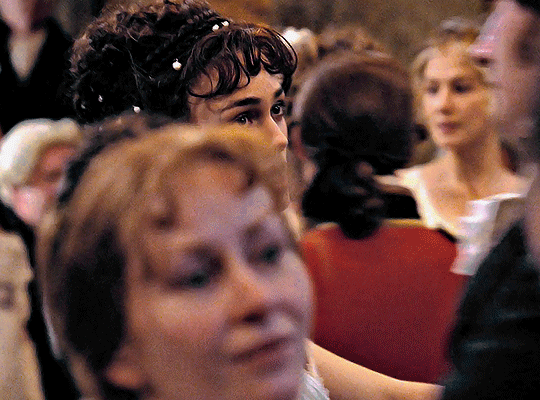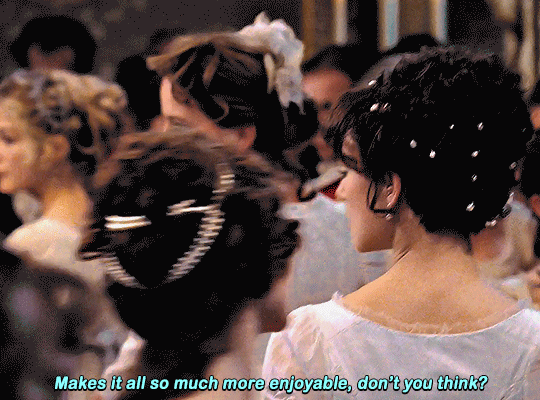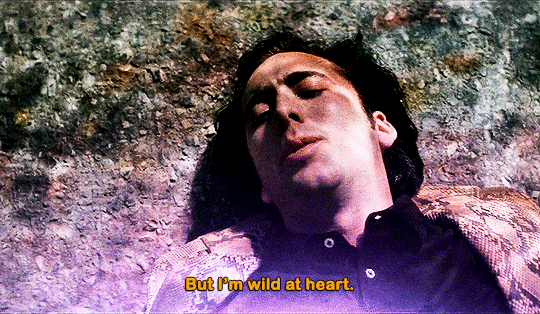all kind, all beautiful, all poetic. taking my master's in literature, studying the brontës and ancient greece 🏺
Last active 2 hours ago
Don't wanna be here? Send us removal request.
Photo

Horus falcon inlay, made in Egypt in the 4th century (source).
11K notes
·
View notes
Text
“It is extraordinary that nobody nowadays under the stress of great troubles is turned into stone or a bird or a tree or some inanimate object; they used to undergo such metamorphoses in ancient times (or so they say), though whether that is myth or a true story I know not. Maybe it would be better to change one’s nature into something that lacks all feeling, rather than be so sensitive to evil. Had that been possible, these calamities would in all probability have turned me to stone.”
— The Alexiad, written by Anna Komnene, the daughter of the Byzantine Emperor Alexios I Komnenos, c. 1148.
13K notes
·
View notes
Text
everything you love will lead you back to you
10K notes
·
View notes
Text




PRIDE AND PREJUDICE (2005) dir. Joe Wright
2K notes
·
View notes
Text
“ὃ δ᾽ ὄλβιος, ὅν τινα Μοῦσαι φίλωνται: γλυκερή οἱ ἀπὸ στόματος ῥέει αὐδή. - But he is blessed, whomever the Muses love: Sweet speech flows from his mouth.”
— Hesiod, Theogony 96-7.
908 notes
·
View notes
Text
Pre-Dracula Vampire Literature Masterpost Part I: pre-1880s - 1849
Before 1800
“Der Vampir” (“The Vampire”) by Heinrich August Ossenfelder (1748) [Vampires.com] [University of Victoria - German]
“Lenore” by Gottfried August Bürger (1773) [GoogleBooks - Multiple Translations] [University of Tampa - Multiple Translations] (not explicitly about vampires, although it does concern the re-arisen dead)
“The Bride of Corinth” by Johann Wolfgang von Goethe (1797) [GoogleBooks] [Project Gutenberg] [Wikisource]
“The Old Woman of Berkeley” by Robert Southey (1798) [GoogleBooks] [Famouspoetsandpoems.com] (not explicitly about vampires, although it does concern the re-arisen dead)
1800-1819
Thalaba the Destroyer by Robert Southey (1801) [GoogleBooks: Vol 1. | Vol. 2] [Project Gutenberg]
“The Vampire” by John Stagg, in his Minstrel of the North (1810) [GoogleBooks] [Archive,org] [The Literary Gothic]
The Giaour by George Gordon Byron (1813) [GoogleBooks] [Archive.org] [Polish Online Literature Library] [The Literary Gothic - Excerpt]
“A Fragment of a Novel” (aka “The Burial: A Fragment”) by George Gordon Byron (1816) [GoogleBooks] [Archive.org] [Project Gutenberg] [Lesvampires.org] [SFF.net]
“Christabel” by Samuel Taylor Coleridge (1816) [GoogleBooks] [Archive.org] [Project Gutenberg] [Erudit.org] (not explicitly about vampires)
“The Vampyre” by John Polidori (1819) [GoogleBooks] [Archive.org] [Project Gutenberg] [Lesvampires.org] [SFF.net]
“The Black Vampyre” by Robert C. Sands (1819) [Google Books: Part I | Part II | Part III not Available] [Amazon.com ($)]
1820-1829
“La Belle Dame Sans Merci” by John Keats (1820) [GoogleBooks] [Archive.org] [Poetryfoundation.org] (not explicitly about vampires)
“Lamia” by John Keats (1820) [GoogleBooks] [Archive.org] [Bartleby.com] (not explicitly about vampires)
Lord Ruthven ou les Vampires (Lord Ruthven or The Vampires) by Cyprien Berard (1820) [Archive.org - French] [Black Coat Press - English Translation ($)]
The Vampire, or The Bride of the Isles by J. R. Planché (1820) [The Literary Gothic]
Le Vampire (The Vampire) by Charles Nodier (1820) [Munseys - PDF]
“Vampirisimus” by E.T.A. Hoffman (1821), from his Die Erzählungen der Serapionsbrüder (The Serapion Brethren) [GoogleBooks] [Project Gutenburg] [National University of Central Buenos Aires - Spanish] (mentions vampires, but is ultimately about grave-robbing cannibals)
Smarra ou les Demons de la Nuit (Smarra, or the Demons of the Night) by Charles Nodier (1821) [Archive.org - French] [Project Gutenberg - French] [Rilune.org - French] [Amazon.com - English Translation ($)]
Han d'Islande (Hans of Iceland) by Victor Hugo (1821) [GoogleBooks] [Archive.org: Vol. I | Vol. 2] (not explicitly about vampires, although a major character drinks blood for the sake of revenge)
“Wake Not the Dead” by Ernst Benjamin Salomo Raupach (1823) [Project Gutenberg] [Lesvampires.org] [SFF.net]
La Vampire Ou La Vierge De Hongrie (The Vampire or The Hungarian Virgin) by Étienne-Léon de Lamothe-Langon (1825) [Gallica.bnf.fr: Vol. 1 | Vol. 2 | Vol. 3 - French] [Black Coat Press - English Translation ($)]
Der Vampyre und seine Braut (The Vampire and his Bride) by Carl Spindler (1826) [GoogleBooks - German] [Bibliotheque-vampires.de - German]
La Guzla, ou Choix de Poesies Illyrique (The Guzla, or a Selection of Illyric Poems) by Prosper Merimee (1827) [GoogleBooks - French] [Archive.org - French] (A literary hoax that purports to be a collection of folklore)
“Pepopukin in Corsica” by Arthur Young (1827) [GoogleBooks]
Der Vampyr (The Vampire) by Heinrich Marschner and Wilhelm August Wohlbrück (1828) [Stanford University - Libretto] [Archive.org - German Score] [Archive.org - German Recording] [Zeno.org - German Libretto]
Der Vampyre, oder die Totenbraut (The Vampyre and the Dead Bride) by Theodor Hildebrand (1828) [GoogleBooks - German]
1830-1839
“The Eve of Ivan Kupala” (aka “St. John’s Eve”]by Nikolaj Vasilevic Gogol (1832), from his Evenings on a Farm Near Dikanka [The University of Adelaide] (not explicitly about vampires, although it does concern blood-drinking witches)
“The Vampire Bride” by Henry Thomas Liddell (1833) [GoogleBooks]
“The Viy” by Nikolaj Vasilevic Gogol (1835), from his Mirgorod [The University of Adelaide] (not explicitly about vampires, although it does concern blood-drinking witches)
“La Morte Amoureuse” (“The Dead Lover,” aka “Clarimonde”; “The Beautiful Vampire”; “The Dead Woman in Love”; “The Dead Leman”) by Théophile Gautier (1836) [GoogleBooks] [Archive.org] [Project Gutenberg] [Lesvampires.org] [Université du Québec à Chicoutimi - French]
“Ligea” by Edgar Allan Poe (1838) [GoogleBooks] [Project Gutenberg] [Poestories.com] (not explicitly about vampires, although it does concern the re-arisen dead)
“Sem'ya Vurdalaka” (“The Family of the Vourdalak,” aka “The Curse of the Vourdalak”) by Aleksey Konstantinovich Tolstoy (1839) [Scribd] [Az.lib.eu - Russian]
1840-1849
Der tote Gast (The Dead Guest) by Heinrich Zschokke (1840) [GoogleBooks] (not explicitly about vampires, although it does concern the re-arisen dead)
Upyr (The Vampire) by Aleksey Konstantinovich Tolstoy (1841) [Az.lib.eu - Russian] [Amazon.com - English Translation ($)]
‘The Vampire" by James Clerk Maxwell (1845) [GoogleBooks] [Poemhunter.com]
Varney the Vampyre, or, The Feast of Blood by James Malcolm Rhymer (sometimes attributed to Thomas Preskett Prest) (1845-1847) [University of Virgina] [Project Gutenberg - Incomplete]
Wuthering Heights by Emily Bronte (1847) [GoogleBooks] [Archive.org] [Project Gutenberg] (not explicitly about vampires, although Heathcliff is accused of vampirsm)
“La Dame pâle” (“The Pale Lady,” aka “The Carpathian Mountains”; “The Vampire of the Carpathian Mountains”) by Alexandre Dumas and Paul Bobage, in Les mille et un fantômes (The Thousand and One Ghosts) (1849) [Project Gutenberg - French] [Wikisource - French] [Amazon.com - English Translation ($)]
More Vampire Lit: [x]
Werewolf Lit: [x]
Adapted from this forum post. Original poster has not read all works listed, but has applied descriptive/helpful notes where possible.
3K notes
·
View notes
Text
studying ancient history will have you thinking stuff like The 18th century was basically yesterday
60K notes
·
View notes
Text

hey, look
a poem about a blow job via our mad buddy boy Percy Shelley, circa. 1810
110 notes
·
View notes
Text
People often say LOTR is a story about hope. (I'm reminded of it because someone said it in the notes of my Faramir post.) And that's true, but it's not the whole picture: LOTR is in large part a story about having to go on in the absence of hope.
Frodo has lost hope, as well as the ability to access any positive emotion, by Return. He is already losing it in Towers: he keeps going through duty and determination and of course Sam's constant help.
For most of the story, Sam is fueled by hope, which is why it's such a huge moment when he finally lets go of the hope of surviving and returning home, and focuses on making it to the Mountain. To speed their way and lighten the load, he throws his beloved pots and pans into a pit, accepting that he will never cook, or eat, again.
When Eowyn kills the Witch King, she's beyond hope and seeking for a glorious death in battle. It's possible that in addition to her love and loyalty for Théoden, she's strengthened by her hopelessness, the fear of the Nazgúl cannot touch someone who's already past despair.
Faramir is his father's son, he doesn't have any more hope of Gondor's victory or survival than Denethor does, he says as much to Frodo. What hope have we? It is long since we had any hope. ... We are a failing people, a springless autumn. He knows he's fighting a losing war and it's killing him. When he rejects the ring, he doesn't do it in the hope that his people can survive without it, he has good reason to believe they cannot. He acts correctly in the absence of hope.
Of course LOTR has a (mostly) happy ending, all the unlikely hopes come true, the characters who have lost hope gain what they didn't even hope for, and everyone is rewarded for their bravery and goodness, so on some level the message is that hope was justified. But the book never chastises characters who lost hope, it was completely reasonable of them to do so. Despair pushed Théoden and Denethor into inaction, pushed Saruman into collaboration, but the characters who despaired and held up under the weight of despair are Tolkien's real heroes.
(In an early draft of Return, Frodo and Sam receive honorary titles in Noldorin: Endurance beyond Hope and Hope Unquenchable, respectively. Then he cut it, probably because it was stating the themes of the entire book way too obviously, because this is what Tolkien cared about, really: enduring beyond hope. Without hope.)
Also, people who know more than me about the concept of estel, feel free to @ me.
11K notes
·
View notes
Text
you heard of the academic icarus, now get ready for:
Academic Achilleus: your argument is pretty indisputable and strong- except for that one weak spot that could take it (and you) to the grave.
Academic Ulysses: you are soooo close to your conclusion but somehow something always leads you astray. you have been writing this paper for what feels like 10 years. the gods are against you
Academic Sisyphus: You have deleted and rewritten this paragraph numerous times. it still does not work out. you delete it again.
11K notes
·
View notes
Text
“We cast a shadow on something wherever we stand, and it is no good moving from place to place to save things; because the shadow always follows. Choose a place where you won’t do harm - yes, choose a place where you won’t do very much harm, and stand in it for all you are worth, facing the sunshine.”
— A Room with a View, E.M. Forster
87 notes
·
View notes
Text
When I Have Fears
by John Keats
When I have fears that I may cease to be Before my pen has glean’d my teeming brain Before high piled books in charact'ry Hold like rich garners the full-ripened grain; When I behold upon the night’s starred face, Huge cloudy symbols of a high romance, And think that I may never live to trace Their shadows with the magic hand of chance; And when I feel, fair creature of an hour, That I shall never look upon thee more, Never have relish in the fairy powre Of unreflecting love -- then on the shore Of the wide world I stand alone and think, Till love and fame to nothingness do sink.
352 notes
·
View notes
Text






SHERYL LEE as The Good Witch Wild At Heart (1990) dir. David Lynch
6K notes
·
View notes


